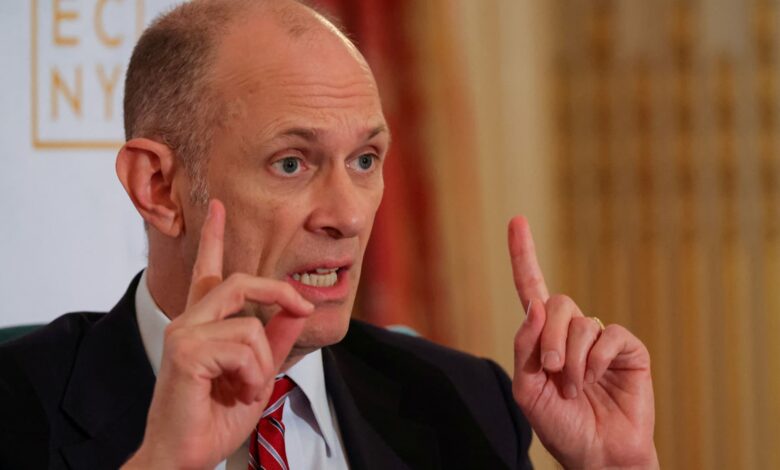Trump tariffs could cause summer economic slump: Chicago Fed president

Business owners and CEOs across the United States are bracing for the impact of President Donald Trump’s tariffs by stocking up on inventory. In response to the looming threat of increased import levies, some American consumers are also engaging in panic buying of big-ticket items. This sudden surge in purchasing behavior has caught the attention of experts, with Federal Reserve Bank of Chicago President Austan Goolsbee warning of potential consequences.
Goolsbee highlighted the potential for an “artificially high” level of economic activity resulting from preemptive purchasing by both businesses and consumers. The increased demand for goods could lead to a temporary boost in economic indicators for the month of April. However, Goolsbee cautioned that this surge may be short-lived, as it could result in a slowdown in the following months due to depleted inventories.
The auto industry and other sectors affected by Trump’s tariffs are expected to be particularly active in stockpiling inventory to mitigate the impact of potential tariff increases. China, a major manufacturing hub for car parts and electronic components, currently faces a 145% total tariff rate on its exports to the U.S. With the 90-day tariff pause set to expire on July 9, businesses are rushing to secure their supply chains before any new developments.
Amidst the uncertainty and financial challenges posed by the tariffs, some business owners are already feeling the strain. Matt Rollens, CEO of a novelty drinkware company based in California, shared his concerns about the impact of the tariffs on his business. Unable to afford rush orders due to the high levies, Rollens is holding off on importing goods from China in the hopes of a resolution before his inventory runs out.
Despite the short-term challenges, Goolsbee remains optimistic about the country’s long-term economic prospects. He pointed to positive indicators such as low unemployment rates and decreasing inflation, suggesting that the economy is fundamentally strong. However, the ongoing trade tensions and potential tariff escalations continue to cast a shadow of uncertainty over the future.
In the face of these challenges, businesses are seeking to adapt and prepare for whatever may come. The impact of Trump’s tariffs is being felt across industries, prompting strategic decisions and adjustments to supply chains. As the deadline for tariff negotiations approaches, the business community remains on edge, hoping for a resolution that will allow them to navigate these turbulent times with confidence.





